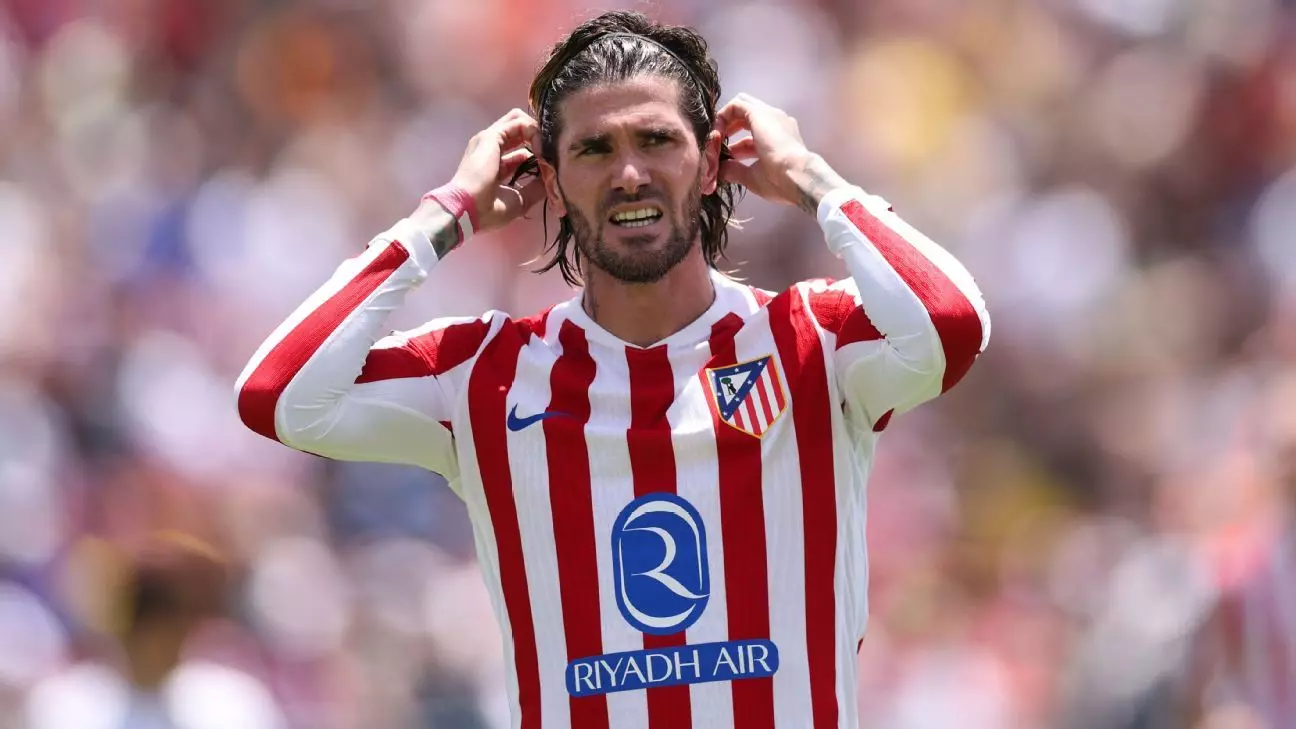Inter Miami’s recent acquisition of Rodrigo de Paul signals a pivotal moment in their ambition to establish themselves as a formidable force in Major League Soccer. By securing a highly regarded midfielder from Atlético Madrid, the club demonstrates its willingness to invest in star power and elevate the team’s competitive stature. De Paul’s arrival, initially on loan, aligns with the broader strategy of building a roster capable of contending both domestically and internationally. This move isn’t just about adding a talented player—it’s a statement that Miami aims to redefine its identity and challenge traditional MLS narratives with a more ambitious, European-level approach.
De Paul’s addition complements existing superstars like Lionel Messi, Jordi Alba, and Sergio Busquets, forming a core of high-caliber talent. While he isn’t immediately occupying a designated player spot, his presence adds depth and versatility to the midfield—a sector long identified as an area for reinforcement. The potential of converting his loan into a permanent deal suggests Miami’s commitment to cultivating a long-term project around talent acquisition and development. This calculated risk reflects a forward-thinking mentality, one that recognizes the importance of investing in experienced players with international pedigree.
Beyond the Pitch: The Cultural and Strategic Significance
Bringing Rodrigo de Paul to MLS extends beyond mere tactical improvements; it underscores Miami’s broader vision of transforming the league’s perception and appeal. The club appears determined to attract top-tier talent and create a competitive environment that commands respect both locally and globally. De Paul’s proven track record with Argentina, notably his contributions to winning the 2022 World Cup and multiple Copa América titles, emphasizes Miami’s desire to align themselves with elite international standards. His presence, alongside Messi, can serve as a catalyst for elevating the league’s profile, attracting new fans, and fostering a culture of excellence.
However, the move is not without complexities. De Paul’s initial non-DP status indicates a strategic balancing act—leveraging marquee players without overcommitting salary cap resources immediately. It hints at a nuanced understanding of MLS rules and the necessity of managing team composition carefully. Should an opportunity arise to elevate De Paul to designated player status, Miami’s flexibility allows for further strategic adjustments, signaling a pragmatic approach to roster management in a league still evolving its financial ecosystem.
The Broader Implications for MLS and Player Development
Inter Miami’s signing of Rodrigo de Paul underscores a turning point for the league’s reputation as a destination for top-tier talent. Historically, MLS was viewed as a league that players transitioned to in the late stages of their careers; however, recent moves like this challenge that narrative. Miami’s approach exemplifies a shift toward attracting players who seek competitive challenges, international recognition, and new commercial opportunities in the U.S. market.
This strategic pursuit of star power also raises questions about the league’s growth trajectory and the sustainability of such high-profile acquisitions. The incoming talent brings immediate competitiveness but also pressures the league to strengthen its infrastructure, youth development, and global image. Miami’s bold steps might catalyze a new era in MLS—one where clubs are more aggressive in chasing world-class players, reshaping the league’s perception among players and fans worldwide.
Miami’s deal for Rodrigo de Paul epitomizes a club willing to challenge conventions and invest boldly in building a competitive, star-studded roster. It reflects a clear vision: MLS clubs are no longer content to be mere stepping stones but are positioning themselves as viable destinations for top international talent. This move could very well serve as a catalyst, inspiring similar strategies across the league and accelerating MLS’s journey toward global prominence.

Leave a Reply